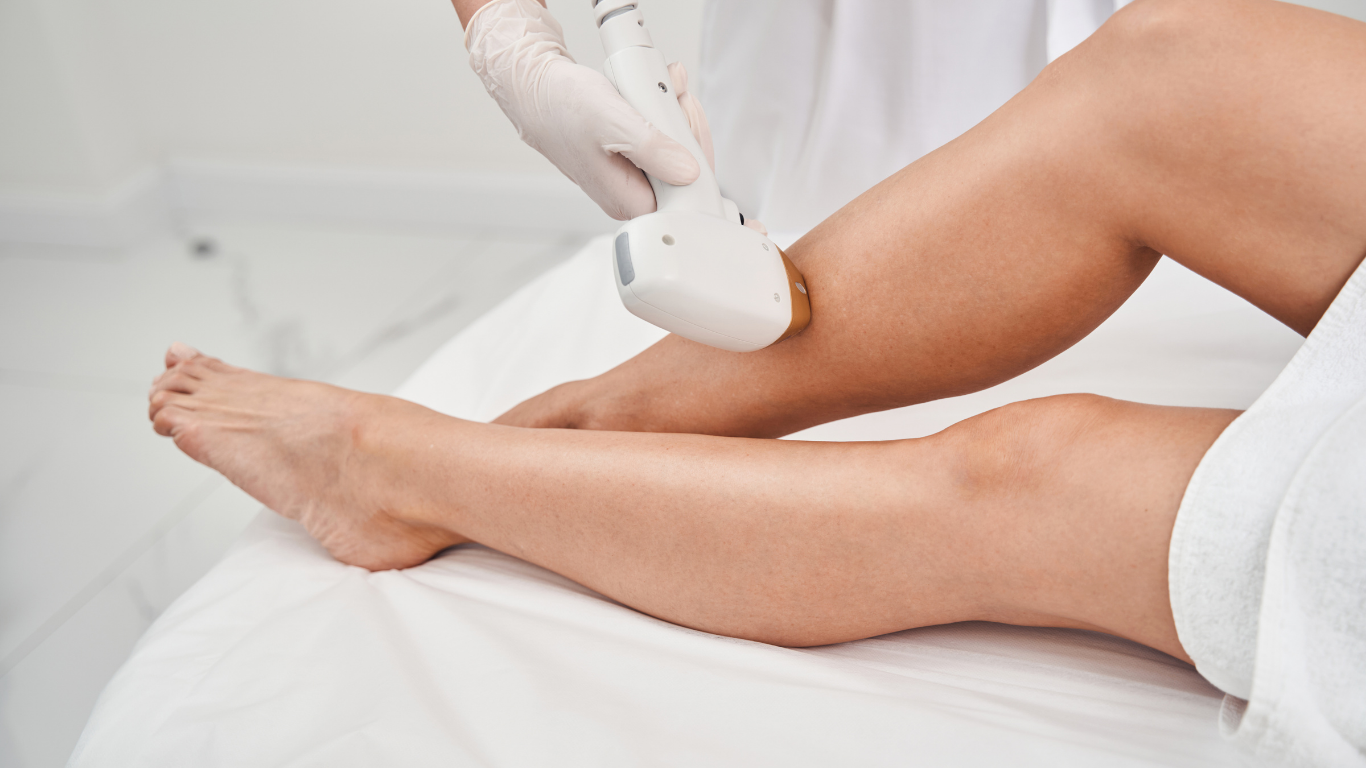September 2, 2025

Laser treatments have revolutionized the world of beauty and skincare, providing potent solutions for a range of aesthetic concerns. From skin rejuvenation to hair removal, lasers have become a go-to, non-invasive alternative to treatments that previously relied on strong chemicals. The future of laser treatments promises even more innovation that further reduces the side effects, recovery time, and precision of popular cosmetic procedures.
At The Laser Cafe, we are focused on providing cutting-edge aesthetic laser treatments that provide all the benefits of advanced laser technology. We offer Erbium laser skin resurfacing, LaseMD laser facials, and laser hair removal, addressing the common concerns of our patients. Erbium resurfacing treatments can reduce the appearance of wrinkles, scars, stretch marks, and hyperpigmentation without the drawbacks of chemical exfoliants.
LaseMD™ treatments rejuvenate the skin from within through the application of low-level lasers that pass through the outer dermis, penetrating deep into the dermal layers. LaseMD™ doesn’t cause the flaking that is common after harsher treatments like chemical peels. The minimal side effects and short recovery period further demonstrate the gentle yet effective nature of lasers in aesthetic medicine.
Laser hair removal is one of the most popular laser treatments that has advanced rapidly over the years. Laser treatments can gradually remove hair, slow regrowth, and potentially halt new hair growth for some patients. As laser hair removal technology has advanced, we have seen the treatment become more accessible to a larger group of people. In the future, we expect to see massive leaps in laser treatments and what they can achieve.
The development of more advanced laser therapy treatments is transforming how existing treatments work and enhancing their effectiveness. A primary focus of ongoing research is the refinement of laser precision through careful adjustments in wavelengths and nanosecond pulse durations. Improved precision allows practitioners to target specific layers of skin or hair follicles with minimal damage to the surrounding tissue.
Cosmetic laser devices that dynamically adjust their settings during treatment can provide a more customized approach based on the patient’s skin type. In this area, researchers are making massive strides in AI and robot-assisted laser systems. AI can analyze skin in real time, allowing practitioners to optimize each laser session for the best results. 3D maps ensure uniform laser coverage and more consistent results.
While traditional laser treatments such as hair removal, pigmentation correction, and scar remodeling are mainstays, researchers are exploring other uses for cosmetic lasers. For example, practitioners have begun using lasers to stimulate collagen production to minimize the visible signs of aging. Advances in fractional laser technology will enable deeper skin penetration with lower energy levels, making treatments safer for more people.
New laser protocols are in development for the treatment of inflammatory skin conditions. Rosacea and acne can be improved with laser therapies that target blood vessels and bacteria beneath the skin. We are seeing a growing intersection between cosmetic lasers and therapeutic dermatology, giving patients with severe conditions an alternative to traditional chemical treatments.
Furthermore, laser-assisted drug therapy is on the rise. Numerous studies are reviewing the use of microscopic laser channels to improve medication delivery. These studies aim to discover new methods for increasing the penetration of topical treatments, thereby enhancing their effectiveness. We predict significant developments in non-invasive cosmetic technology for the treatment of skin concerns like pigmentation and wrinkles.
The future of laser technology will also bring further integration with complementary cosmetic procedures. Hybrid devices that combine lasers with radiofrequency, ultrasound, and microneedling can deliver incredible results that tighten, lift, and improve the texture of skin. Combined procedures can reduce treatment times and provide more visible results with fewer sessions required. Hybrid laser therapies also allow for customization to meet unique needs.
Inclusivity in cosmetic treatments is one of the notable upcoming trends in aesthetics. While it is currently a trendy topic of conversation, inclusivity in the beauty and wellness industry is critical for the evolution of aesthetic medicine. Fortunately, as more people discuss inclusivity, there has been a significant advance in research to design treatments that work for a broad spectrum of skin types and colors.
Historic biases have led to the exclusion of people with darker skin tones, increasing their risk of hyperpigmentation and burns. New cosmetic lasers allow practitioners to adjust the intensity of the laser for different skin types to make the treatment safer and more effective.
Additionally, improving pigment recognition and differentiation between dark hair and dark skin will reduce the risk of severe burn injuries. Many patients from underrepresented groups invest in laser treatments that ultimately do not provide the desired results. Cosmetic laser advancements will ensure more reliable treatments that perform equally as well on all skin tones and hair types.
The increased focus on laser treatment innovations has led to the development of incredible new technologies that provide options we didn’t know were possible. If you are interested in exploring our existing treatments or discussing future treatment possibilities, contact The Laser Café to schedule a consultation. Our expert team is here to answer any questions you may have and design a personalized treatment plan tailored to your specific needs.
Design & Development by Jamie Danae | Sitemap | Privacy Policy | Cookie Policy | Terms and Conditions | Data Subject Access Request Form
The information available on this website is provided for informational purposes only. This information is not intended to replace a medical consultation where a physician’s judgment may advise you about specific disorders, conditions, and/or treatment options. We hope the information will be useful for you to become more educated about your health care decisions. If you are vision-impaired or have some other impairment covered by the Americans with Disabilities Act or a similar law, and you wish to discuss potential accommodations related to using this website, please contact us at 619-795-8303.